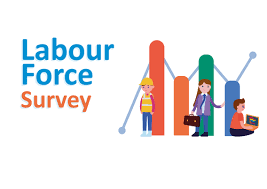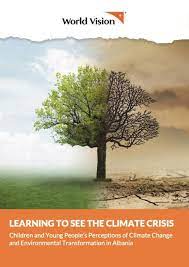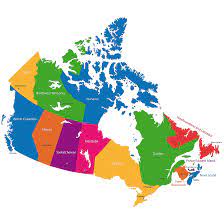Filter By

Canada
The Labour Force Survey (LFS) is a monthly survey of Canadian households carried out by Statistics Canada. It was developed after the Second World War to satisfy a need for reliable and timely data on the labour market due to the massive labour market changes involved in the transition from a war to peace-time economy. The objectives of the LFS have been to divide the working-age population into three mutually exclusive labour force status categories (employed, unemployed, and not in the labour force) and to provide descriptive and explanatory data on each of these groups. With the release of the survey results only 10 days after the completion of data collection, the LFS estimates are the first of the major monthly economic data series to be released. The LFS is the source of Canada's official unemployment rates, including the rates used by Employment and Social Development Canada in the calculation of Employment Insurance (EI) eligibility and benefit criteria. Data from the survey also provide information on major labour market trends, such as shifts in employment across industrial sectors, hours worked and labour force participation.
Canada
Almost no public opinion research has been conducted to date on the general topic of contaminated sites at a national level. The purpose of this research is to measure Canadian public opinion on the issue of contaminated sites to provide a baseline from which future studies can be conducted to measure changes in opinions in response to government communications initiatives.
Canada
Environment Canada has identified a need for sound information on current youth opinion pertaining to climate change in order to direct policy and communications efforts. In light of this need, Ipsos-Reid was commissioned to conduct opinion research among young Canadians (from 16 to 25 years of age) to establish a baseline measurement of their awareness, receptivity and behaviour on issues related to climate change.
Canada
Canadians' Attitudes toward the Federation is a Pollara Poll Commissioned by the Mowat Centre.
Canada
The Provincial Diversity Project is a survey aimed at comparing public opinions realities across provinces on identity and attachment, views about federalism, attitudes toward ethnic diversity and immigration, as well as views on social, economic and political issues.
Canada
Environment Canada’s Air Quality Forecast Program (AQFP) provides air quality forecasts to 75% of Canadians. The program works as a partnership between Environment Canada and the provinces. These forecasts are a one to two day prediction of air quality conditions. Air quality is expressed using an Air Quality Index (AQI), which provides information on the adverse effects of the more common air pollutants. TNS Canadian Facts was contracted by Environment Canada to conduct a survey which was designed to gauge attitudes and awareness of the AQFP, communication issues surrounding the program, and other general issues of relevance to the program
Argentina, Brazil, United Kingdom, Canada, Chile, China, France, Germany, India, Indonesia, Italy, Japan, Korea, Republic of, Nigeria, Russia, Spain, Sweden, Turkey
The Millennium Poll on Corporate Social Responsibility 1999 is a survey of global public opinion on the role of companies in society. This survey is based on the the results of face-to-face or telephone surveys with representative samples of about 1,000 citizens in each of 23 countries on six continents at varying stages of development.
Argentina, Brazil, United Kingdom, Canada, Chile, China, France, Germany, India, Indonesia, Italy, Japan, Korea, Republic of, Nigeria, Russia, Spain, Sweden, Turkey
Environics Corporate Social Responsibility Monitor 2002 is a survey of global public opinion on the role of companies in society. This survey is based on the the results of face-to-face or telephone surveys with representative samples of about 1,000 citizens in each of 25 countries on six continents at varying stages of development. The survey was fielded after September 11 in each country. Media focus on the Enron Corp. did not begin until the survey was completed in the USA.
Argentina, Brazil, United Kingdom, Canada, Chile, China, France, Germany, India, Indonesia, Italy, Japan, Korea, Republic of, Nigeria, Russia, Spain, Sweden, Turkey
The findings of the Environics Global Issues Monitor, 2001 Survey are based on the results of face-to face or telephone interviews with representative samples of about 1,000 citizens in each of 20 countries on five continents. Environics 2001 Global Issues Monitor survey was conducted in the following countries: Argentina, Brazil, Canada, Chile, China, France, Germany, Great Britain, India, Indonesia, Italy, Japan, Mexico, Nigeria, Russia, South Korea, Spain, Sweden, Turkey, United States. Research was conducted by respected social research institutes in each country between November 23, 2000 and February 9, 2001. In Canada, the survey was conducted by Environics Research Group Ltd. It consisted of a nation-wide telephone survey with a sample of 1,015 individuals, 18 years and older carried out between December 11 and December 19, 2000.
Argentina, Brazil, United Kingdom, Canada, Chile, China, France, Germany, India, Indonesia, Italy, Japan, Korea, Republic of, Nigeria, Russia, Spain, Sweden, Turkey
Environics Corporate Social Responsibility Monitor 2002 is a survey of global public opinion on the role of companies in society. This survey is based on the the results of face-to-face or telephone surveys with representative samples of about 1,000 citizens in each of 25 countries on six continents at varying stages of development. Research was carried out by respected social research institutes in each country between October and December 2001.










